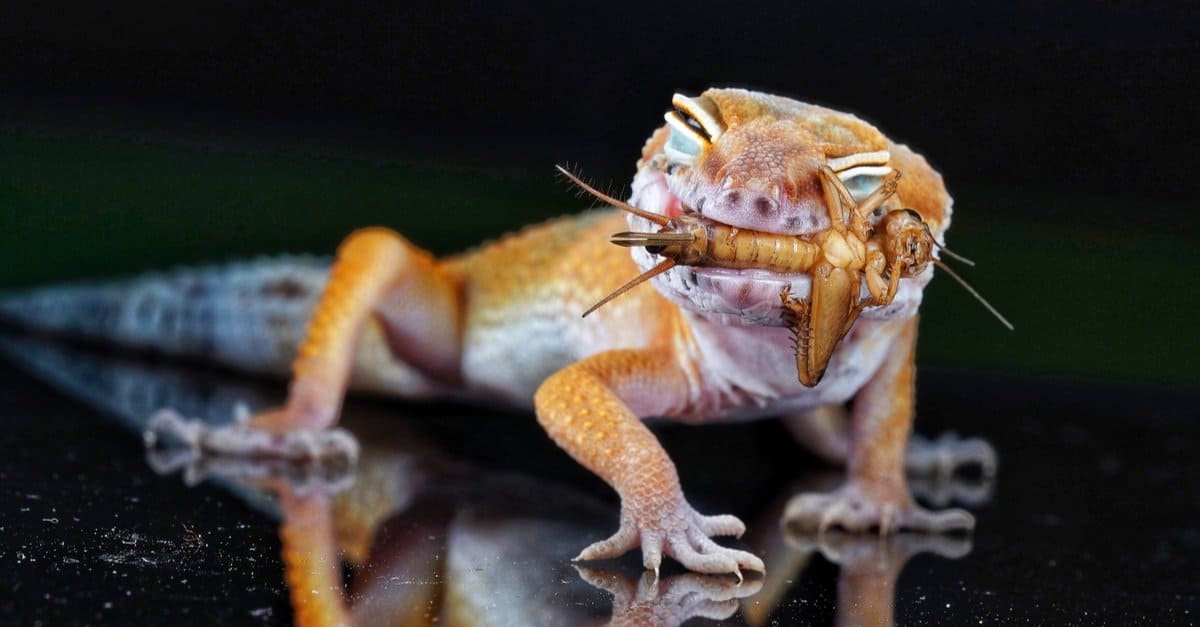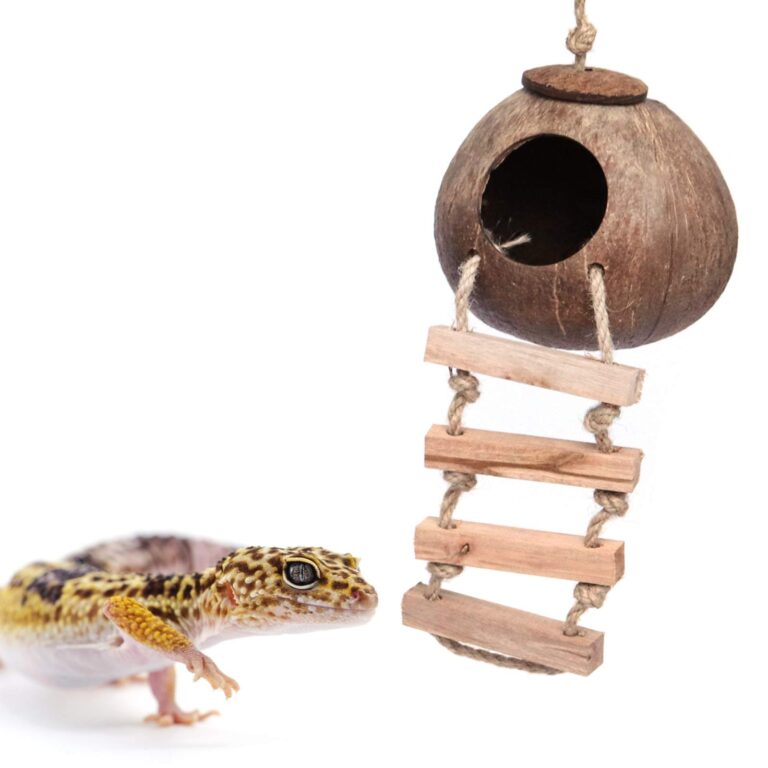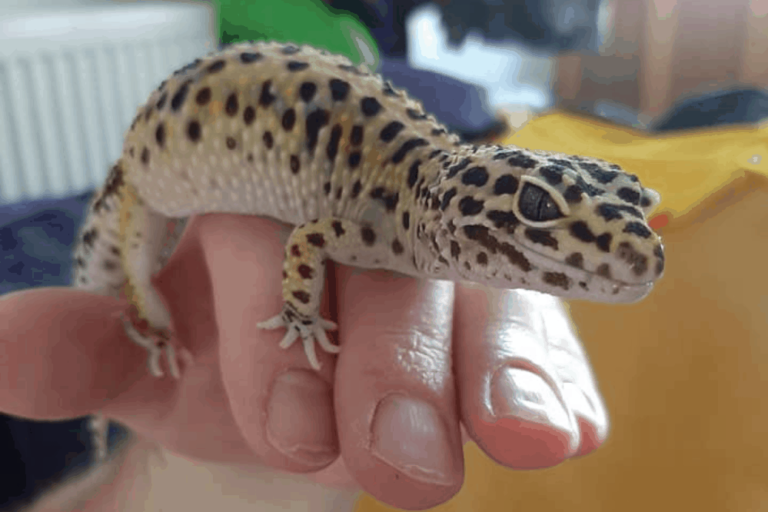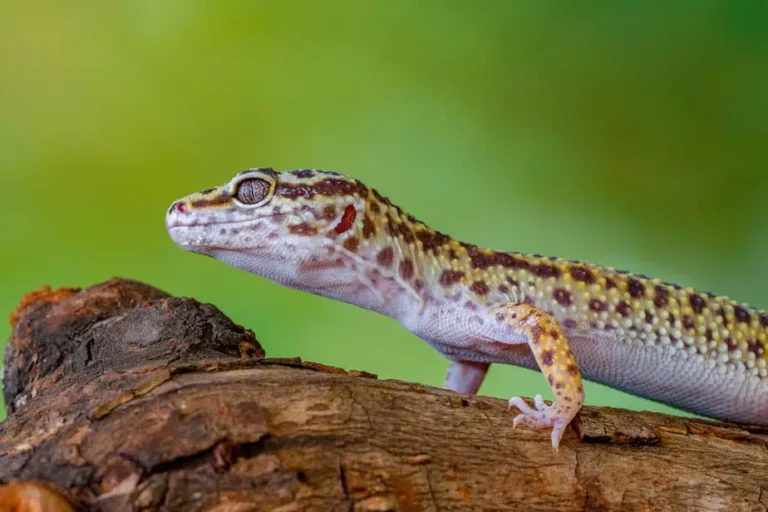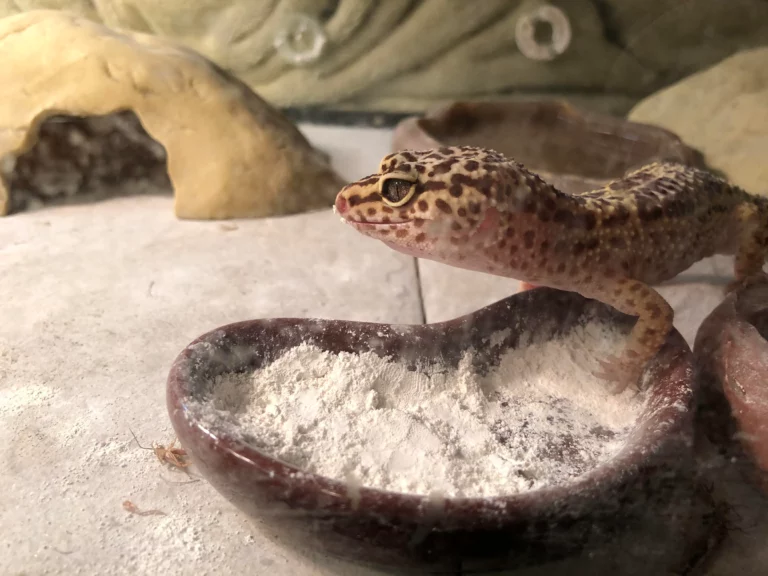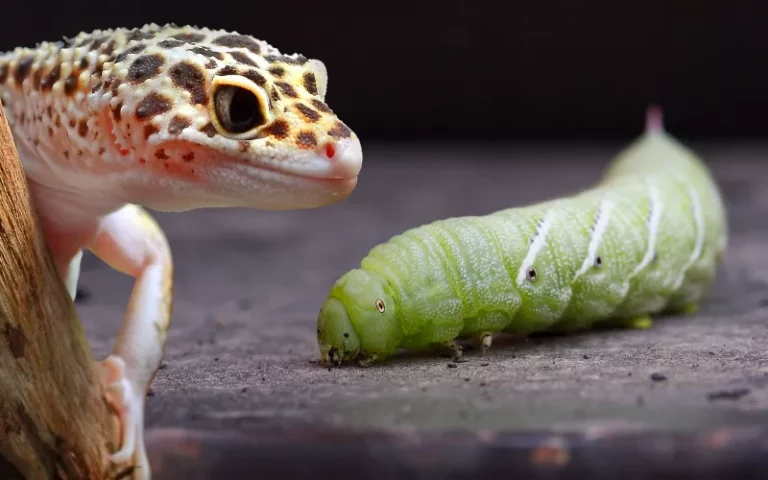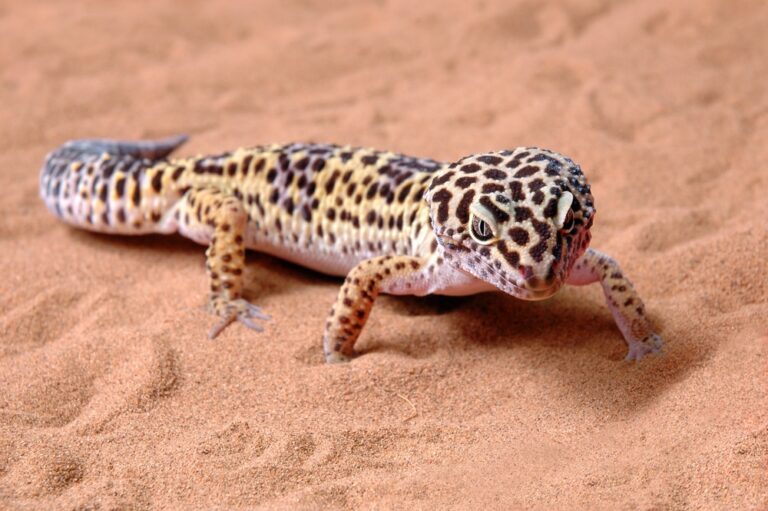Can Leopard Geckos Eat Flies? A Fascinating Tale of Gecko Gourmet
As I gazed into the glass enclosure, captivated by the rhythmic flicker of the heat lamp casting an amber glow, I found myself engrossed in the world of leopard geckos. These small, mesmerizing creatures had become more than just terrarium inhabitants; they were my companions, each with unique quirks and personalities.
Today, my curiosity had been piqued by a seemingly simple yet intriguing question: “Can leopard geckos eat flies?”
In the world of reptile keeping, questions like these are windows into the enigmatic lives of our scaly friends. It was a question that would lead me down a fascinating path, unveiling the intricate nuances of leopard gecko care and their dietary preferences.
So, YES they can eat flies, including fruit flies and their larvae. However, flies should be offered as an occasional treat rather than a staple in their diet due to the large quantity needed to meet their nutritional requirements. Providing a balanced diet for overall well-being is essential.
Let’s get to know more
Which Flies Do Leopard Geckos Eat?
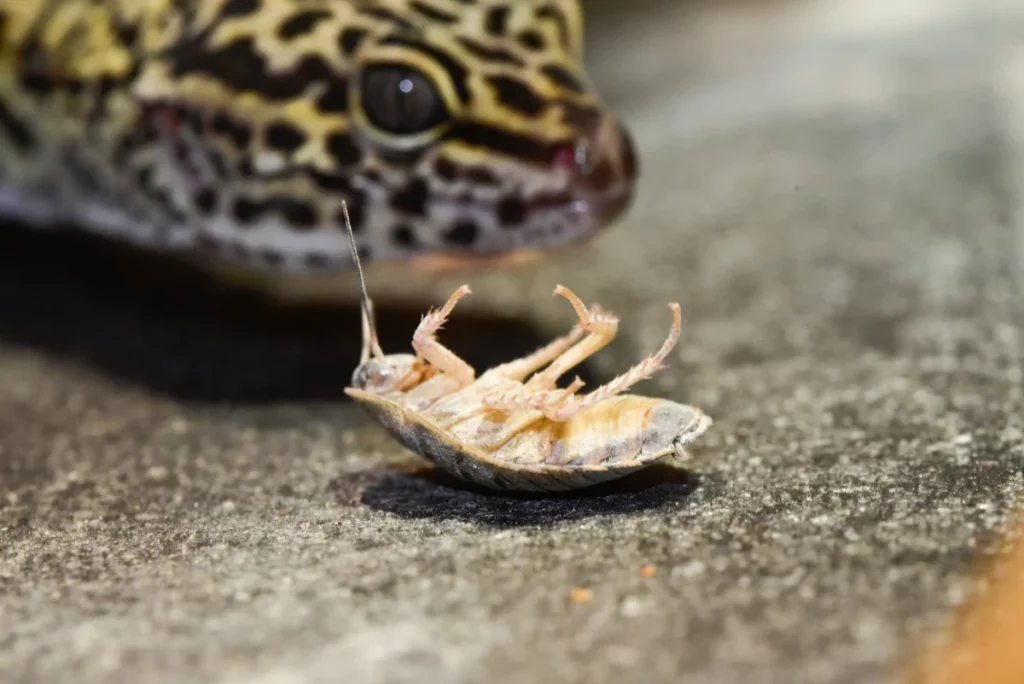
Fruit Flies: These tiny insects, like Drosophila melanogaster and their larvae, are a suitable and commonly offered option.
Houseflies: Larger than fruit flies, houseflies can also be fed to them, but they should be appropriately sized and pesticide-free.
Bluebottle Flies: These larger flies are occasionally offered to adult ones, as they provide a more substantial meal.
Soldier Flies: Nutrient-rich soldier fly larvae are another suitable option, offering variety and nutritional value.
Black soldier flies: Leopard geckos can consume “BSFL,” or black soldier fly larvae. These larvae are filling and terrific addition to their diet because they provide variability and important nutrients for health.
Nutritional Values of Various Flies
| Nutritional Component (per 100g) | Fruit Flies | Houseflies | Bluebottle Flies | Soldier Flies | Black Soldier Flies |
| Protein | 65g | 60g | 65g | 40g | 40-43g |
| Fat | 17g | 25g | 15g | 35g | 35-40g |
| Fiber | 6g | 6g | 4g | 12g | 12-15g |
| Calcium | 5mg | 9mg | 6mg | 95mg | 100-120mg |
| Phosphorus | 110mg | 100mg | 120mg | 950mg | 850-950mg |
| Moisture | 70% | 62% | 74% | 60-70% | 60-70% |
Benefits of Feeding Flies to Your Gecko
Nutritional Variety: They provide a different nutritional profile compared to other staple foods like crickets or mealworms. Introducing variety can help ensure it receives a broader range of essential nutrients.
Stimulation of Natural Behavior: Hunting for flying insects engages pets’ natural hunting instincts. This activity can provide mental stimulation and exercise, promoting a more active and healthier pet.
High Protein Content: mainly black soldier fly larvae, are protein-rich. Protein is essential for growth, tissue repair, and overall health in reptiles.
Hydration: Many have a relatively high moisture content, which can contribute to hydration, especially in arid environments where maintaining proper humidity levels can be a challenge.
Risks of Feeding Flies to Your Gecko?
Calcium and Phosphorus: Flies, especially soldier fly larvae, are a good source of calcium and phosphorus, important minerals for bone health in reptiles.
Appetite Stimulation: Offering a variety of foods can stimulate it appetite. If your pet is a picky eater, introducing flies as an occasional treat may encourage it to eat more consistently.
Dietary Enrichment: Providing a diverse diet can help prevent dietary deficiencies and related health issues, contributing to a healthier and happier gecko.
Size Discrepancy: Flies, especially fruit flies, can be very small, making them suitable for hatchling geckos but less ideal for larger adults. Feeding that are too small for it can lead to inadequate nutrition and even choking hazards.
Escape: Flies are agile and can be challenging to contain within the enclosure. Some might escape, potentially introducing pests or causing hygiene issues.
Parasites: They are collected from the wild and may carry parasites or diseases that can be transmitted to it. Always use captive-bred or properly sourced insects to reduce this risk.
Dietary Imbalance: Overreliance on any single type of insect, can cause dietary imbalances. It’s crucial to maintain a varied diet to ensure Buddy gets all the necessary nutrients.
Nutritional Variation: The nutritional content of them can vary depending on factors like their diet and age. It’s challenging to control these variables when using wild-caught flies.
Allergic Reactions: In rare cases, they can develop allergies or sensitivities to certain insects, including them. Monitor for any adverse reactions after introducing new foods.
Overfeeding: Flies are relatively small, and geckos may consume them in larger quantities than needed, potentially leading to obesity.
Nutritional Comparison: Flies vs. Standard Feeder Insects
| Nutrient | Flies (average) | Standard Feeder Insects (average) |
| Protein | 40-65g | 50-70g |
| Fat | 15-35g | 15-30g |
| Fiber | 4-15g | 1-3g |
| Calcium | 6-120mg | 100-500mg |
| Phosphorus | 100-950mg | 200-800mg |
| Moisture | 60-74% | 55-75% |
FAQs
Can geckos eat wild flies?
Yes, geckos can eat wild flies. However, it’s crucial to ensure that the flies are from a clean, pesticide-free environment to avoid potential health risks.
Can wild flies carry parasites?
Yes, wild flies can carry parasites or diseases, which is why it’s recommended to use captive-bred or properly sourced insects to reduce the risk.
Can you feed your leopard gecko dead flies?
Yes, you can feed your leopard gecko dead flies, but live prey may stimulate their natural hunting behavior more effectively.
Are flies nutritious compared to standard feeder insects?
Flies can be nutritious, offering a different nutritional profile. However, it’s essential to provide a varied diet that includes other standard feeder insects for balanced nutrition.
Final Words
In summary, I’ve learned that leopard geckos can indeed enjoy flies as part of their diet. Flies offer nutritional benefits and stimulate their natural hunting instincts, making mealtime more engaging.
However, it’s essential to remember that flies should be just one component of a balanced diet. Offering a mix of different insects ensures that your gecko gets all the necessary nutrients for a healthy life.
Feeding flies to leopard geckos adds a fun and nutritious twist to their diet, keeping them happy and healthy. It’s a simple way to enrich their lives and support their well-being.

